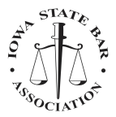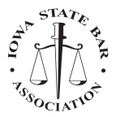Negligence in the Nursing Home SettingA nursing home is generally a facility that provides shelter, food and care for the sick, elderly or infirm. Different terms are used to describe a nursing home facility, such as: rest home, old age home, convalescent home, special care facility, assisted living facility or retirement facility. Nursing homes are often thought of as facilities for the elderly. While it is true that a majority of residents in nursing homes are elderly, residents may be a person of any age who is dependent either mentally or physically for care. Although these care facilities provide health care by trained professionals, they are not hospitals and may have different requirements according to state and federal law. A common state or federal requirement is that nursing homes must provide a general standard of care based on what similar caregivers and facilities provide in the community. Facilities that do not meet this general standard of care may be liable for violation of state and federal negligence laws. If you or a loved one has been harmed while a nursing home resident, contact an attorney at Hemminger Law Firm in Des Moines, IA, for advice about protecting your legal rights and seeking recompense for injury.
Types of abuseIn addition to the general standard of care, state and federal law have requirements for nursing home facilities that protect against mistreatment or abuse of residents. The Older Americans Act defines elder abuse, neglect and exploitation and set a framework for states to follow when identifying elder abuse. Three types of abuse in the act are as follows: self-neglect or self-abuse, domestic abuse and institutional abuse. The main type of abuse identified in nursing homes is institutional abuse. Abuse can be emotional or physical. Emotional abuse is an intentional act that causes emotional pain to another, such as yelling at a resident, threatening a resident with physical abuse, isolating or insulting a resident and denying a resident food or privileges as a form of punishment. Physical abuse may consist of injuries such as bodily harm, malnutrition, bedsores, poor hygiene and deprivation of medical care.
Standard of care and negligenceA nursing home or healthcare facility must exercise reasonable care to avoid injury to their patient’s physical and mental state. Such a facility has special knowledge of resident ailments and must respond accordingly to prevent further harm. If reasonable care or prevention is not given, a facility may be held liable. Additionally, a nursing home may be held liable for injuries caused by the negligence of an employee, negligent supervision of employees and negligent hiring or retention of an employee.
If there has been an injury due to negligence, residents and/or their families may have a claim against the care facility for institutional elder abuse through negligence per se and ordinary negligence actions. For negligence per se claim, the plaintiff must belong to a class of individuals protected by statute. Violation of the statute is negligence as a matter of law. State and federal statutes lay out the minimum standards of care that a nursing home must abide by in regards to caring for their patients, facilities and supervision and hiring of employees. If these standards are not met, there may be a claim for negligence per se. To have a claim for ordinary negligence, four elements must be met: (1) the nursing home has a duty to the resident (this may often be through contract); (2) the nursing home has breached this duty (deviation from the statutory or contractual standard of care); (3) the breach has caused the resident’s injury (the injury was caused by the defendant or would not have occurred but not for the defendant’s action); and (4) the patient suffered damages (damages may include: healthcare expenses, pain, suffering, mental anguish and a diminished capacity to enjoy life). Nursing home requirements and claimsNursing home facilities are required by federal law to screen potential employees and do a criminal background check prior to hiring them. State and federal regulations for long-term care facilities place minimal requirements for nursing homes and their employees. Along with these minimal requirements, most states also have regulations that provide for periodic inspections of facilities, mandatory reporting or abuse or neglect and employee licensing criteria. 42 CFR § 483.1 et seq. Some additional state requirements may include minimum hours of skilled care per patient per day, special prerequisites for nurses and aids and a prohibition on hiring employees who have been previously found guilty of neglect, mistreatment or abuse. If a nursing home facility does not abide by state or federal regulations regarding resident care, employment standards and facility and equipment maintenance, they may be liable of negligence per se or ordinary negligence. In addition to negligence, some other claims against nursing homes that may be available include ones based on premises liability, inadequate security, medical malpractice and wrongful death.
Speak to a personal injury lawyerIf you or a loved one has been harmed while a nursing home resident, contact an attorney at Hemminger Law Firm in Des Moines, IA for advice about protecting your legal rights and seeking recompense for injury.
|
What We Do Really WellWorkers' compensation
Motor Vehicle Accidents
Personal Injury
Nursing Home Neglect
Follow Us On:What We Do Really WellWorkers' compensation
Motor Vehicle Accidents
Personal Injury
Nursing Home Neglect
Follow Us On: |
|
Hemminger Law Firm
Personal Injury Attorney 2454 S.W. 9th Street Des Moines, Iowa 50315-1904 Phone: 515-283-2116 Fax: 515-244-6206 |




